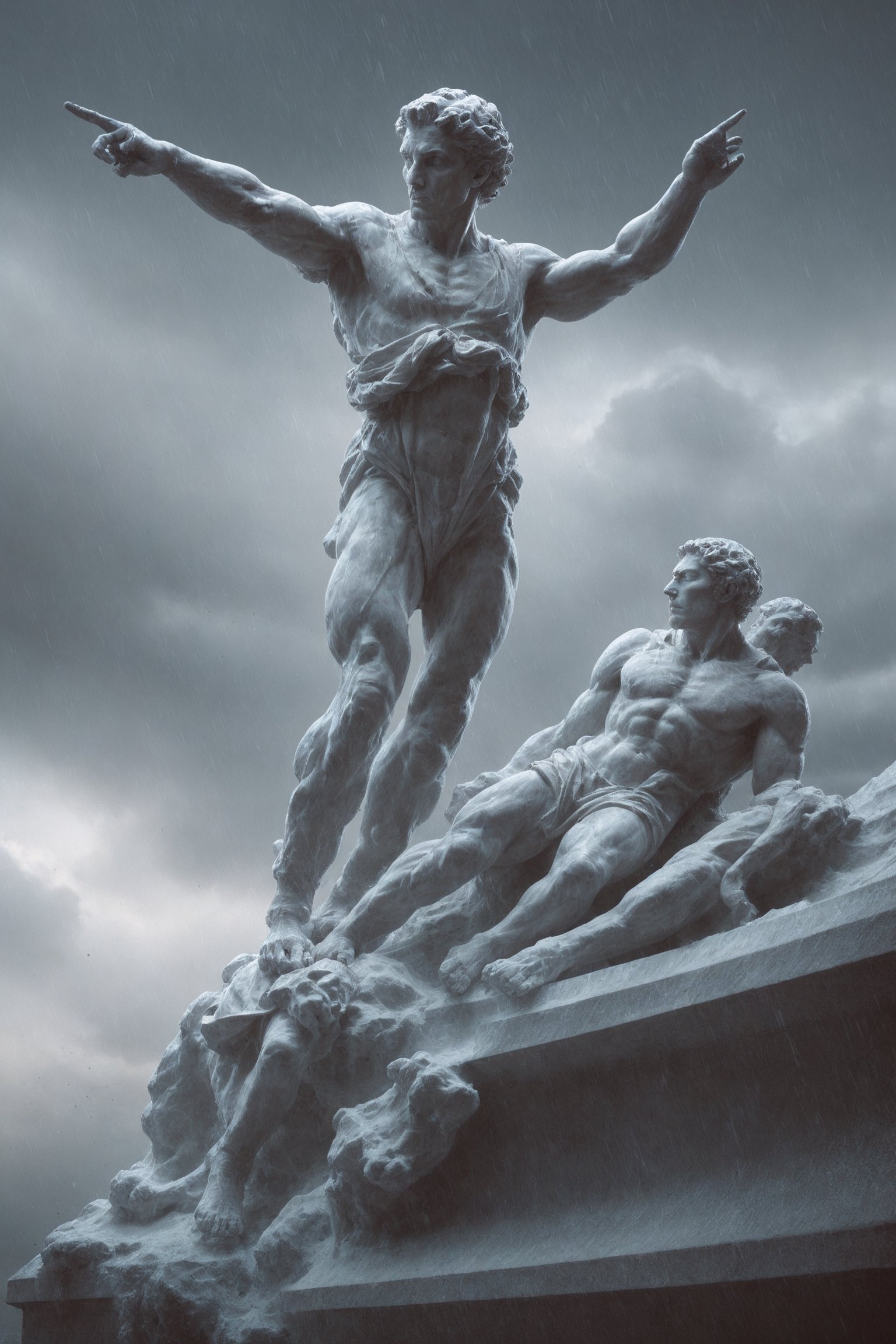martius_storm,In a scene that evokes the grandeur of the Renaissance, the formidable storm unfolds in the sky, a tribute to Michelangelo's mastery of dramatic and dynamic environments. In the midst of this powerful tempest, the figure of the Stormweaver, Goddess Eirian, is portrayed with the sculptural precision and anatomical perfection characteristic of Michelangelo's work. Her form, reminiscent of the figures in the Sistine Chapel, displays a powerful grace, her muscles and drapery defined with the careful attention to detail and understanding of the human body that Michelangelo famously depicted in his sculptures like 'David' and 'Pieta.' Eirian's attire, though ethereal and flowing, possesses a sense of weight and texture akin to the marble folds Michelangelo carved in his statues. Every fold of her gown, every movement she makes amidst the swirling clouds, echoes the artist's ability to capture both the strength and softness of the human form. The descending mechanical artifacts, integrated into this Michelangelo-inspired tableau, are rendered with the same level of detail and realism. Their design is influenced by the intricate engineering sketches and studies from Michelangelo's notebooks, blending seamlessly with the mythological and classical theme. This scene, a blend of Michelangelo's classical artistry with the mythical narrative of the Stormweaver, creates a powerful, timeless composition, filled with the dramatic tension and physical realism that defined Michelangelo's legacy, all captured in a high-resolution, cinematic frame

